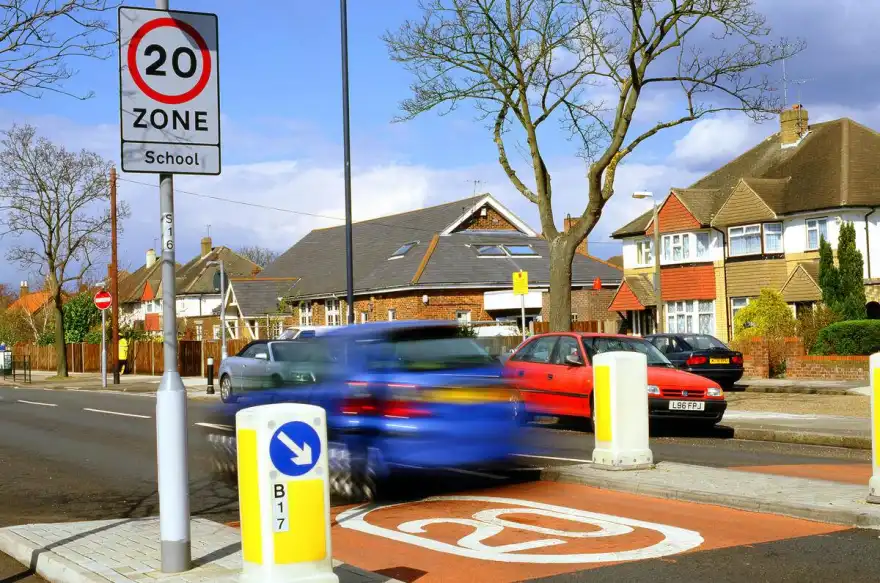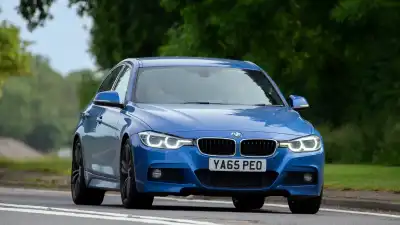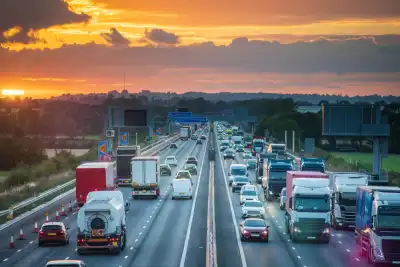
Police have caught drivers reaching speeds up to four times the legal limit on 30mph roads, with some exceeding 120mph, according to an investigation by the RAC.
Data from 40 police forces revealed that nearly half recorded speeds of over 90mph in 30mph zones between January 2023 and August 2024. The most extreme case was in South Yorkshire, where a driver hit 122mph. On 20mph roads, North Wales police recorded a driver traveling at 88mph.
Motoring experts warn that roads with lower speed limits often have more pedestrians, cyclists, and other vulnerable road users, making excessive speeding even more dangerous.
The highest speed recorded in the study was 167mph on a 70mph section of the M1 in Leicestershire. The biggest speed difference relative to the limit was in Somerset, where a driver was clocked at 161mph in a 50mph zone on the A303.
Breakdown of highest speeds recorded on 30mph roads
| Rank | Police Force | Highest Speed Recorded (mph) |
| 1 | South Yorkshire Police | 122 |
| 2 | Sussex Police | 113 |
| 3= | Greater Manchester Police | 112 |
| 3= | West Yorkshire Police | 112 |
| 4 | West Mercia Police | 106 |
| 6 | Lancashire Constabulary | 104 |
| 7= | Nottinghamshire Police<br> | 103 |
| 7= | Bedfordshire Police<br> | 103 |
| 9= | West Midlands Police | 100 |
| 9= | Police Service of Northern Ireland | 100 |
| 11 | Dorset Police | 97 |
| 12 | Lincolnshire Police | 96 |
| 13= | Avon and Somerset Police | 93 |
| 13= | Kent Police | 93 |
| 13= | Police Scotland | 93 |
| 16 | Leicestershire Police | 92 |
| 17= | Cambridgeshire Constabulary | 91 |
| 17= | Durham Constabulary | 91 |
| 17= | Gwent Police | 91 |
| 20= | Hampshire Constabulary | 90 |
| 20= | Hampshire Constabulary | 90 |
| 22= | Devon and Cornwall Police | 89 |
| 22= | Merseyside Police | 89 |
| 22= | Norfolk Constabulary | 89 |
| 25 | Staffordshire Police | 87 |
| 26= | Northumbria Police | 85 |
| 26= | Hertfordshire Constabulary | 85 |
| 28= | Suffolk Constabulary | 83 |
| 28= | Warwickshire Police | 83 |
| 30 | Cumbria Police | 78 |
| 31= | Cheshire Constabulary | 77 |
| 31= | North Yorkshire Police | 77 |
| 33 | Northamptonshire Police | 76 |
| 34 | Gloucestershire Constabulary | 74 |
| 35 | North Wales Police | 72 |
| 36 | Cleveland Police | 64 |
The Impact of Speeding
Speed is the leading cause of fatal crashes in the UK. Government data shows that in 2023, speeding was a factor in 888 deaths and nearly 40,000 collisions. The RAC has urged the Government to address excessive speeding in its upcoming road safety strategy, calling it a major cause of “avoidable casualties.”
Chief Constable Jo Shiner, the National Police Chiefs' Council lead for roads policing, emphasised that while some speeding incidents result from driver error, the extreme speeds recorded suggest deliberate recklessness. "Choosing to drive at these speeds is dangerous, selfish, and completely unacceptable," she said.
A Culture of Speeding?
An RAC survey found that 55% of drivers believe there is a culture in the UK where speeding is seen as acceptable, compared to just 23% who disagreed. The Department for Transport has relaunched its Think! campaign to target speeding, particularly on rural roads.
Tragic Consequences
Several high-profile cases illustrate the deadly impact of speeding. In December 2024, 19-year-old Thomas Johnson was jailed for over nine years after crashing his BMW at 87mph in a 30mph zone, killing three passengers in Oxfordshire. Another driver, Shangeeth Sathyanathan, 20, received a nine-year sentence for causing a fatal crash in Birmingham while driving at 75mph in a 30mph zone.
The Need for Action
The scale of extreme speeding suggests enforcement alone isn’t enough. With nearly one in four police forces recording drivers exceeding 140mph, the focus must shift to changing driver attitudes and strengthening road safety measures. The Government faces increasing pressure to act before more lives are lost.




